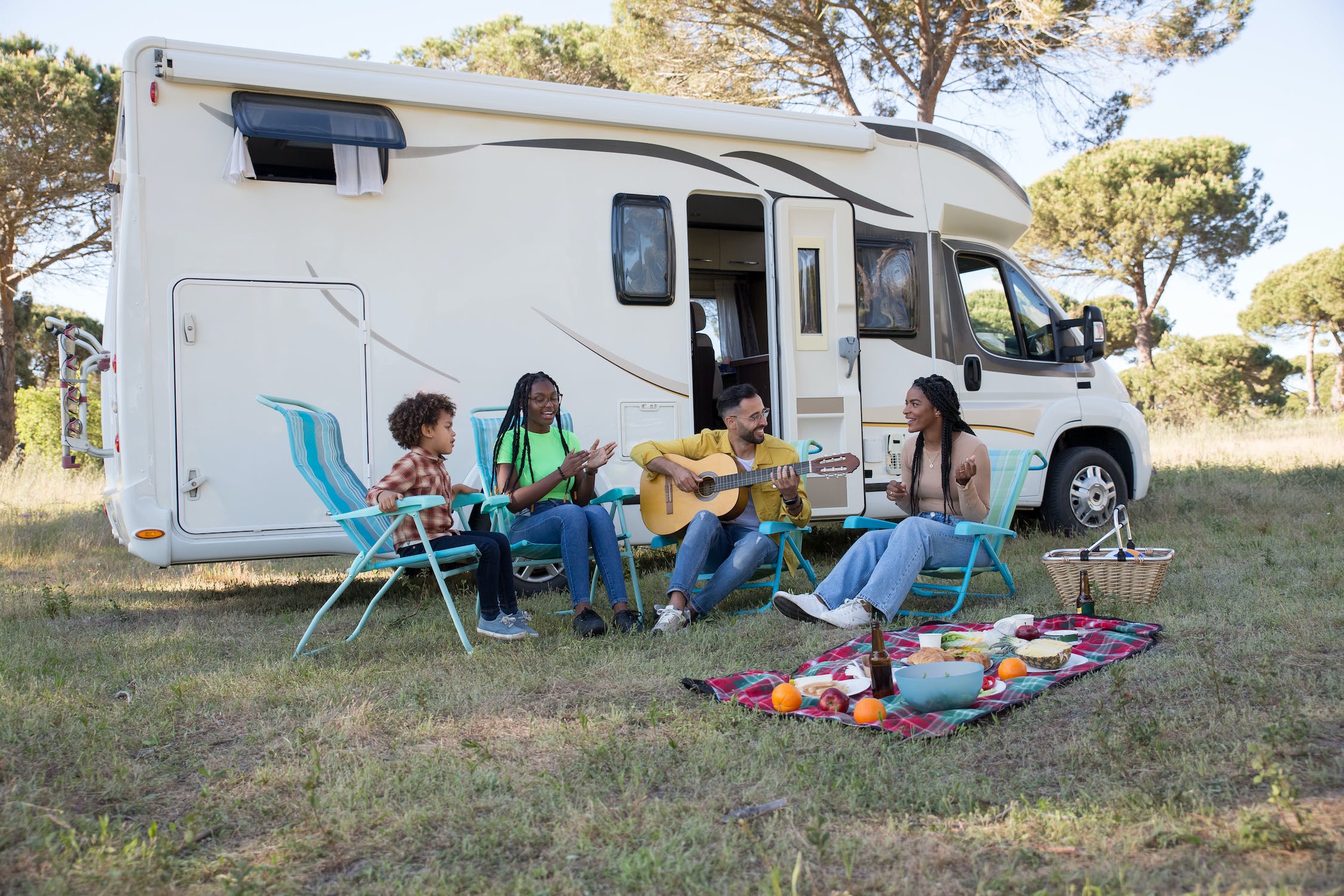Frequently Asked Questions About RV Insurance
Recreational Vehicles, or RVs, are a popular way for people to travel and explore the world while enjoying the comforts of home. Whether you own a motorhome, travel trailer, or other types of RV, it’s important to understand the risks involved and the need for adequate insurance coverage. RV insurance can provide financial protection in case of accidents, theft, and other unexpected events that can result in costly repairs or liability claims.
- What is RV Insurance?
RV insurance is a type of insurance coverage that is designed to protect your recreational vehicles, such as a motorhome, travel trailer, or fifth-wheel trailer. It typically offers a range of coverage options, including liability coverage, collision coverage, and comprehensive coverage.
- Do I need RV Insurance?
If you own an RV or planning to purchase one, it is highly recommended that you obtain RV insurance. It can provide protection against a variety of risks. Additionally, many RVers use their vehicles as their primary residence, and RV insurance can provide coverage for personal property and other belongings.
- What does RV Insurance cover?
RV insurance is designed to provide coverage for a variety of risks associated with owning and operating a recreational vehicle. Here are some of the main types of coverage typically included in RV insurance policies:
- Liability coverage: This coverage can help protect you from financial responsibility in case of accidents where you are at fault and others are injured or property is damaged.
- Collision coverage: This coverage can help pay for repairs or replacement of your RV if it is damaged in a collision, regardless of who is at fault.
- Comprehensive coverage: This coverage can help pay for damage to your RV caused by things like theft, vandalism, fire, weather-related events, and other non-collision incidents.
- Personal property coverage: This coverage can help protect your personal belongings stored in your RV, such as clothing, electronics, and other valuables.
- Emergency expenses coverage: This coverage can help pay for expenses associated with emergency lodging, transportation, and other costs if your RV is damaged or destroyed while you’re on the road.
- Roadside assistance coverage: This coverage can help cover the costs associated with emergency services like towing, fuel delivery, and other services if your RV breaks down on the road.
- How much does RV Insurance cost?
The cost of RV insurance varies depending on a number of factors, including the type and value of your RV, your driving record, and your coverage options. On average, RV insurance can cost anywhere from a few hundred dollars to several thousand dollars per year.
- How can I get cheaper RV Insurance?
You can get cheaper RV insurance by shopping around for quotes from multiple insurance companies, maintaining a good driving record, increasing your deductible, and taking advantage of discounts such as bundling your RV insurance with other policies.
- Is RV Insurance required by law?
In most cases, RV insurance is not required by law, but there are some exceptions. Here are some situations where RV insurance may be required:
- Financing: If you finance your RV, your lender may require you to carry comprehensive and collision insurance coverage to protect their investment.
- State laws: Some states require liability insurance for RVs that are driven on public roads. The specific requirements vary by state, so it’s important to check with your local Department of Motor Vehicles or insurance provider for details.
- RV parks and campgrounds: Some RV parks and campgrounds require proof of insurance before allowing you to park or stay on their property.
- What is full-time RV Insurance?
Full-time RV insurance is a specialized type of coverage for RVers who use their RV as their primary residence. This type of insurance includes additional coverage for personal belongings, full-time liability protection, and coverage for loss of use.
- Does RV Insurance cover damage caused by natural disasters?
Most standard RV insurance policies provide coverage for damage caused by events such as fire, theft, vandalism, and accidents. However, coverage for natural disasters such as hurricanes, floods, and earthquakes may not be included in a standard policy.
RV owners who live in areas prone to natural disasters may want to consider adding optional coverage to their policy, such as flood insurance or earthquake insurance. It’s important to note that these types of optional coverage may be subject to separate deductibles or coverage limits.
- Does RV Insurance cover the cost of renting a vehicle if my RV is in the shop for repairs?
Some RV insurance policies include coverage for the cost of renting a temporary replacement vehicle while your RV is being repaired, while others may not include this type of coverage.
If you are interested in having coverage for the cost of renting a temporary replacement vehicle, you may want to consider adding optional coverage to your policy such as rental reimbursement or trip interruption coverage. Trip interruption coverage pays for additional expenses such as hotel bookings or meals you didn’t account for due to a RV breakdown.
- Does RV Insurance cover the cost of repairing or replacing custom equipment and accessories added to my RV?
Some RV insurance policies may include coverage for custom equipment and accessories, while others may not. If you have made significant upgrades or modifications to your RV, you may want to consider adding optional coverage to your policy to ensure that these items are covered in the event of damage or loss. Optional coverage options that may provide protection for custom equipment and accessories can include:
- Custom Equipment Coverage: This type of coverage provides protection for items such as awnings, satellite dishes, and custom paint jobs.
- Personal Effects Coverage: This type of coverage provides protection for personal items such as electronics, clothing, and other personal belongings that you may carry in your RV.
- Does RV Insurance cover damages to my tow vehicle?
RV insurance policies typically provide coverage for the RV itself and may include liability coverage for accidents that occur while driving the RV, but they do not typically provide coverage for damages to the vehicle used to tow the RV. If you want coverage for damages to your tow vehicle, you may need to purchase a separate auto insurance policy that provides this type of coverage.
- Are wild animal attacks covered by RV Insurance?
Many RV insurance policies cover damage caused by wild animal attacks, but coverage may vary depending on your location and the specific policy you have.
- Can I get coverage for a travel trailer that I use with my RV?
Yes, you can typically get coverage for a travel trailer that you use with your RV. Most RV insurance policies offer coverage for towable units such as travel trailers, fifth wheels, and pop-up campers. This coverage can include liability coverage, collision coverage, and comprehensive coverage, depending on the specific policy and coverage options selected.
- Are rental RVs covered under a traditional RV Policy?
Rental RVs are typically not covered under a traditional RV policy. If you are renting an RV, the rental company may offer insurance coverage options that you can purchase separately to protect yourself and the rental vehicle during the rental period.
- Can I get coverage for an older RV?
Yes, you can typically get coverage for an older RV. Many RV insurance companies offer coverage for RVs of all ages, including older models. However, it’s important to note that the coverage options and premiums may vary depending on the age, condition, and value of the RV. Older RVs may have lower values and may not require the same level of coverage as newer, more expensive models.
- Can I get coverage for a motorhome that I use as a full-time residence?
Yes, you can typically get coverage for a motorhome that you use as a full-time residence. Full-time RV insurance policies are designed for this purpose and offer more comprehensive coverage options than standard RV insurance policies.
- Can I get coverage for a toy hauler that I use to transport my recreational vehicles?
Yes, most RV insurance policies offer coverage for toy haulers, which can include liability coverage, collision coverage, and comprehensive coverage, depending on the specific policy and coverage options selected. It’s important to note that the coverage options and limits may vary depending on the value and use of the toy hauler.
- Can I get coverage for a converted bus that I use as an RV?
Yes, converted buses are often considered to be Class A motorhomes and can be insured under an RV insurance policy. It’s important to note that the insurance company may have specific requirements that the converted bus must meet in order to qualify for coverage as an RV. These requirements may include features such as a kitchen, bathroom, and sleeping quarters.
Overall, RV insurance can provide peace of mind and financial protection in case of unexpected events, allowing you to focus on enjoying your travels and exploring the world around you. Understanding the basics of RV insurance can be confusing for many. However, by addressing common questions and concerns, it’s possible to gain a better understanding of the coverage options available and how to protect yourself and your vehicle on the road.
Carefully review your options and choose a policy that provides the coverage you need. Work with ONYX Insurance Brokers now and be ensured that you have the right coverage at a price that fits your budget. Contact or email us now!




